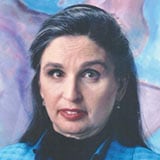Our latest recommendation—an Israeli fertilizer stock—is metziah, a bargain in Hebrew. I have been waiting for a price break to add the stock to our model portfolio, says Vivian Lewis, editor of Global Investing.
Israel Chemicals (ISCHF), operator of the Dead Sea Works, was hurt by the phosphate price wars, which cut its operating margin on the fertilizer, which accounts for roughly half of its sales.
ISCHF also suffered from its decision to pay $118 million in taxes on trapped profits to the taxman. Its bromine line (flame retardants) also suffered, in part, because of lower demand for electronics. That's the bad news.
The good news is that after months of teasing, ISCHF announced it will aim for an NYSE listing. The leading shareholder in ISCHF is The Israel Company (the Ofer family vehicle).
The Ofers are moving to London and want to source finance and investor interest in their Dead Sea operation outside Israel. Unlike the holding company, ISCHF cannot operate outside Israel because its mines are mainly in the Jewish State, but it can list elsewhere.
Leaving out the tax bill, a one-off, its Q3 net income for fertilizers was off 22% to $780 million, largely because China and India were buying cheaper potash from Belarus and Russia, which broke the cartel.
It actually produced 9% more of the stuff—1.27 million metric tones—year-over-year, not from the Dead Sea, but from its mine in England.
ISCHF is part of the legal potash cartel and Potash of Saskatchewan (POT), the enforcer, is one of its shareholders. It sold potash in Q3 at $375/tonne, down $52 from Q2.
Its phosphates line also saw lower sales and margins, $22 million in operating profits on sales of $421 million. The Israelis are waiting for a boost in usage in Q4 because of delayed planting in the USA.
Bromine sales came to 19.4% of the total at ISCHF, down 13% from prior year, with bromine biocides markets for water purification and the drilling fluid business doing well, but the main electronics usage still well below targets.
All in all, bromine sales were up 5% year-over-year and operating income came in up 22% at $73 million.
The bromine line is an offset to fertilizer, another boon from the Dead Sea. It also produces a 35% return on equity and a 16% return on assets. Its return on invested capital is under 22%. And of course, it has a high margin on operations, given that most of its output is raw materials.
ISCHF kept its dividend flat, yielding over 8.4% for us and the Ofers, despite the lowered earnings. The shares are trading at under nine times earnings. As a more diversified fertilizer idea, the company should gain from US exposure.
Subscribe to Global Investing here…
More from MoneyShow.com:










